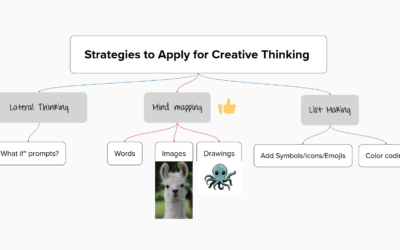The biggest of the big can still fall victim to wishful thinking about the past. Microsoft’s CEO Steve Ballmer announced he would step down after a successor has been chosen, and media reports (including this one from the Atlantic) are seeking lessons learned from his time at the helm. Charities of any size should be paying close attention to the key message here: innovators are going to cut into your core services.
Many nonprofits feel as if they have the type of monopoly Microsoft once enjoyed in the realm of computing. After all, if your group provides the only (fill-in-the-blank-service) in (fill-in-the-blank-location), then of course clients will come to the door for assistance and funders will support this work. There isn’t any other way. The pressure to improve, therefore, can be stymied by the often-stronger pressure of the status-quo. Most nonprofit organizations want to do better, but will cite resource constraints or pending sequestration cuts or (fill-in-the-blank-reason) to keep doing what is known for just a little while longer.
That’s what Microsoft did with their core business. They did incremental improvements, but kept it basically the same for years. After all, most people can’t afford Apple and Linux is too unknown. But it wasn’t Apple or Linux computers that is killing the core Windows business. Its tablets and phones – many from Apple, but more from Samsung which shouldn’t have even been a competitor to Microsoft. Right?
A disruptive force in your mission space isn’t likely to be a brand new charity that figured out the same mousetrap. It is more likely to be an entirely new idea or technology that shifts the whole idea of how to meet a need in a community. It is less likely a nonprofit will be beat out for resources by a new nonprofit with a slightly better grant writer. It is more likely to be a social enterprise leveraging crowdfunding ideas to bring entirely new resources to the table that would have been impractical or impossible to reach five years ago. Nonprofits shouldn’t be worried they will become irrelevant because a different organization has a better client story. Charities should be worried that meaningful evaluation of long-term change will shift the debate entirely.
The best defense if, of course, a good offense. Innovators and disruptors don’t have to come from nowhere. Any existing nonprofit can take a good hard look at how incremental change is serving them and decide to make a bolder move instead. There is time to act in most cases. Microsoft still makes plenty of money, they just do it through business services now instead of consumer computers. A local charity thinking it has monopoly status won’t be replaced overnight. But thinking it won’t happen at all is inviting a more creative group to serve that community need in a different way. Sooner or later – and probably sooner in today’s environment – some other group will do just that.





